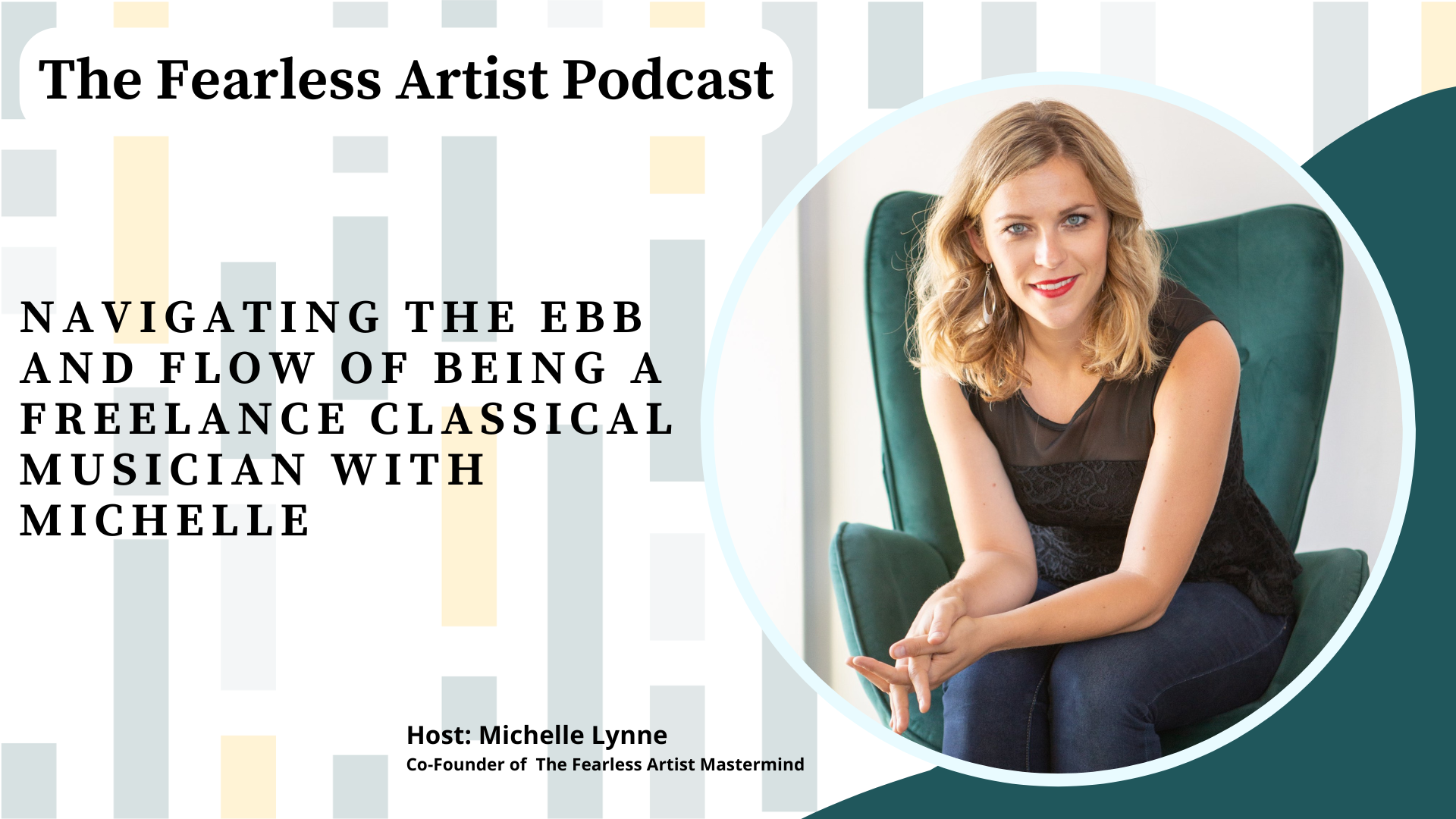Navigating the ebb and flow of being a freelance classical musician with Michelle
Episode 42

Subscribe to The Fearless Artist Podcast
Intro/Outro music by Michelle Lynne • Episode produced by phMediaStudio, LLC

Intro/Outro music by Michelle Lynne • Episode produced by phMediaStudio, LLC